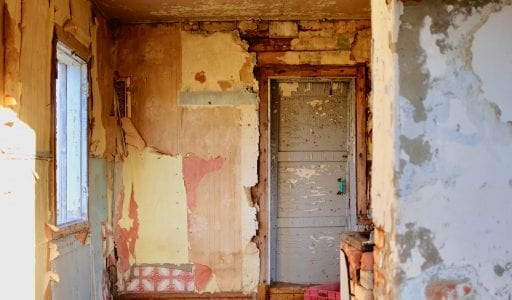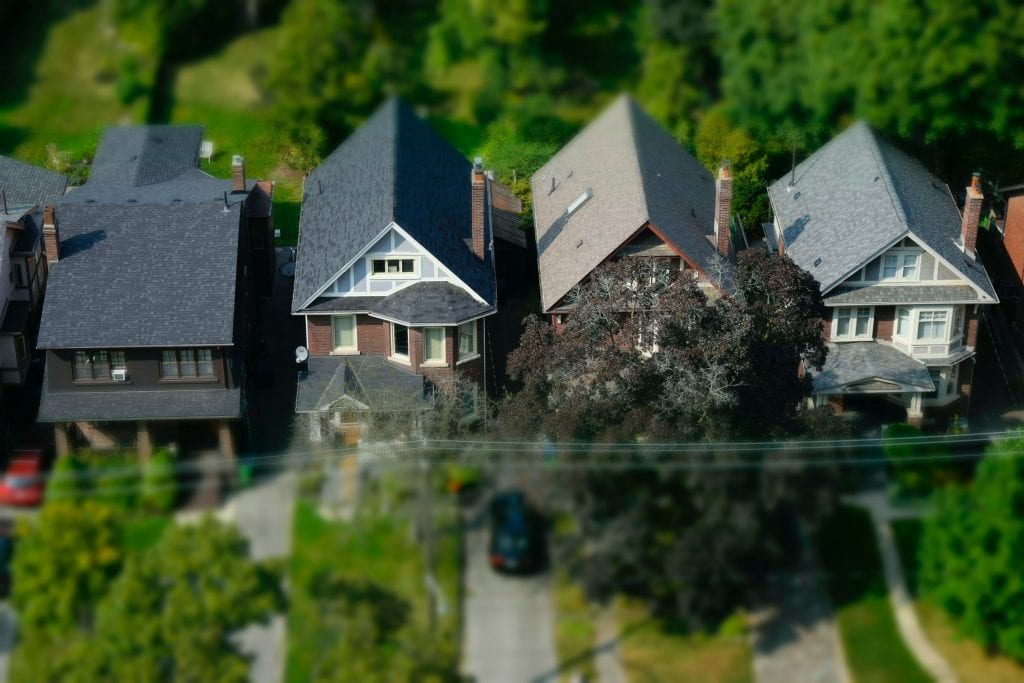What is the real cost of flipping houses?
Have you ever sat in front of the couch, watched a show on house flipping and thought “I could do that, it looks easy enough”. Not you? Well surely that was me! At one point and time I thought just like such – buy a house, do some improvements, turn around and sell that house; how hard can that be? Ugh, Naive! Boy is it a lot harder and cost a great deal more than my average eye seen.
There is a whole lot more to consider when house flipping. “House flipping is when a real estate investor buys houses and then sells them for a profit. In order for a house to be considered a flip, it must be bought with the intention of quickly reselling. The time between the purchase and the sale often ranges from a couple months up to a year”.
Tables of contents
- But smarter, not harder
- Finance smarter too!
- The 70% rule in house flipping
- How to flip a house
- Benefits and risks of flipping houses
- The time factor
- Time for rehab
- Become permit patty
- Keeping the lights On and the insurance paid
- Marketing for flip
- Common house flipping mistakes
- Be afraid but dive anyway
- Conclusion
Buy Smarter, not Harder

For House Flipping to work and produce a worthy profit you must limit your financial risk and also maximize your return on investment (ROI) potential. Simply put – don’t spend too much for the home just because the market value is greater than your purchase price. Make sure you accurately calculate how much the repairs or upgrades that you deem necessary will cost before you buy. Take that given information and then determine your ideal purchase price that will still lend room for your ideal profit.
The 70% rule of house flipping says that an investor should not pay more than 70% of the after-repair value (ARV) of a property minus the repairs needed. The ARV is what the home will be worth after all repairs are complete.
Be smart. Even large corporations haven’t completely cracked the code. Check this out if you want to see how Zillow managed to lose $45 million!
That’s what you call a real cost of flipping houses!
Finance Smarter too!

It’s important to know your financing options. Paying cash would be great if available but even in that instance you must keep in mind there is still interest to be applied. Known as property holding costs and opportunity costs can be applied merely for tying up your hard earned cash.
General financing even if through an equity line is still tax-deductible but not a 100% deduction. Consider when financing for house flipping options that every single dollar you spend in interest will eventually add up to the amount you will need to profit from the sale of the home and if you use a mortgage or home equity line of credit (HELOC) to finance only the interest portion is deductible. The principal, taxes and insurance portion of are non deductible.
Poor financing choices are often a hidden and very real cost of flipping houses.
The 70% rule in house flipping
When you want to buy a rental property there are a lot of factors you should bear in mind. Obviously, a crucial decision is to know how much you will pay for the property itself. When you’re about to rehab a property, you need take into account the repairs you will make on the property before re-selling it. A good starting point is you being able to calculate the appropriate price you will pay for a property you are about to rehab is the 70% rule.
What then is 70% rule?
The 70% rule states that an investor should not spend more than 70% of a property’s After Repair Value (ARV) on any property. This will include the price you will pay for the property itself together with any estimated repair costs.
ARV is the estimate of the value of a property after all repairs and upgrades must have been completed. It will calculate the margin between a property’s current value, and the property’s value after renovation. The 70% rule is the back of the envelope rental property calculation with its limitations. However, it’s a very good starting point. The idea is the chopping off the 30% will leave room for both your profits and miscellaneous expenses
What you should considered when applying this rule?
Market price point
In the lower end property markets, you might run into additional expenses and risks that would impact your investing method. For instance, there may be a risk of break-ins, stolen equipment, vandalism, or the purchase/or repair of appliances.
Exit strategy
While the 70% rule may be an important shorthand for flipping houses, it’s less important for other exit strategies. Rental investors might not even be renovating the property as extensively and might hold the property long term.
Labour and your target profits
Some deals will require more work on your part than others. If you often find a deal that is involving minimal work and a quick turnaround with the buyer already in place. You might be very willing to accept a lower profit margin on the deal and pay much more than the 70% rule would dictate.
How to flip a house
Finance the house flip
Flipping houses is a risky business, and it’s very easy to see why adding debt increases the danger/risks. Let’s consider why you should you flip a house with cash:
No interest fees: House flippers who takes a loan might pay interest for months. Which will only increase the amount they will have to sell the house.
No rush to sell: To use debt to finance a flip will cause you to act out of desperation. When you can’t sell the house, you’re likely to reduce your price, meaning cutting off your profit. Cash only house flippers will wait out a slow market because there’s no interest payments piling up against them each day it doesn’t sell.
No debt to hold you back: More importantly, doing any type of investment with debt is a very dumb plan. Trust me. You trying to sell a flipped house for more money than you have invested in it is already a risk even with the cash. To use debt in the process will skyrocket your chance of losing you money when there’s a hiccup in your plans.
Understand the market
Many house flippers will get excited about their next project and will ignore this less glamorous part of the business. But when you have a little understanding of the market and real estate trends in your area, you would run into the following issues:
- You won’t know when you’re getting a good deal on the house you are buying. The sale price needs to be low enough so you would be able to do the renovations. And still be ahead when the house is priced at the market value.
- You won’t accurately be able to identify the home’s potential value. Your vision for the home must be able to fit the reality of the neighborhood.
- You wont know how to price a house. When you must have bought a house in a neighborhood of mostly $130–150K homes. You’ll need to price your flip at the lower end of that range when you are about to sell.
So how will you be able to get a deep understanding of the market that makes for a successful flip? Simple! Find a good real estate agent with years of experience. Your agent might help you target your home search to the right neighborhoods. That will be based on your price point, budget for renovations, and your desired profit.
Budget for your house flip
Don’t wait until after you bought an investment property to make your budget. Know your price range for buying a home, make any repairs, complete renovation projects, and pay selling costs before sealing the deal.
You should make a list of any cosmetic projects together with any expensive overhauls like electrical problems. If you don’t have any background in construction, a contractor will tell you what needs to be fixed and how much it will cost you. Surprise repairs might make or break a flip, so make sure to do your homework very well.
When you’re under any contract, find a home inspection and any other inspections you might need. It’s always good to spot problems on the front end than to be surprised down the road.
Invest in smart renovations
Understand that unnecessary expensive repairs might quickly cause your renovations to get out of hand. That’s why it’s very important to know your budget up front. And then be sure your updates will stay on track and actually boost the value of the home.
You shouldn’t forget that big renovations such as kitchens and bathrooms might easily make or break your flip.
If you’re hoping to sell a house you’re renovating for $220,000. Then don’t make the mistake of putting $60,000 into custom cabinet installations, high end finishes. Rather, consider a smart renovation that will focus on refinishing the existing cabinets, adding granite counters and replacing the appliances. You’ll be able to spend less and have a higher likelihood of getting back your costs the time you resell the house.
You should get guidance from a local real estate expert
Is it possible to make money from house flipping? When it’s done the right way, you will definitely will! Bear this in mind that the gross profit doesn’t include the amount you spent on repairs and renovations. But when you’re able to flip with cash and stay in your budget for these renovations. It’s completely possible for you to make a great return on your investment.
The key to flipping houses successfully is you being able to to do it with cash, make a good ad smart investment in the kind of house you buy. Choose renovations in your budget, and sell it immediately. To have a real estate agent on your team will help make all these happen! Whether you’re buying a house to stay in it for years or to flip in six months. A quality real estate agent will provide the market knowledge and practical guidance you will need to make a smart investment.
Benefits and risks of flipping houses
Benefits
Potential to earn a good profit
The obvious reason for flipping houses is to make money. For companies and individuals that are involve in this fulltime, flipping houses is a very lucrative business. Not only will you make good returns on your investment, but you will do so relatively faster given the right scenario.
Personal development
Although it will take much time and money, there is more valuable experience to be gained from flipping houses. Regularly buying homes and materials will assist you to develop negotiating skills. You will develop the skill of delegating tasks, managing your time, and holding people accountable will translate to all types of businesses. Of course, you will equally learn about construction and real estate.
Rehabbing homes is rewarding
Even when your only interested in flipping houses is the money, you will learn that there are more other rewards. When you must have renovated and sold an old home, you just gave it a new lease on life. You take what is seen as an eyesore and create something new for a family to make memories in it. You might equally be improving the quality of life on the street and in the neighborhood where that house is located.
Risks
Potential to lose plenty money
No reward will come without some degree of risk. Though you might make plenty money quickly, you might still lose plenty money just as fast. One of the best ways to buy homes for flipping is via auctions or foreclosures. In situations like these, you might not be able to carry out a full inspection and equally determine all of the problems ahead of time. It’s just a gamble.
You should understand that unanticipated expenses will arise even with your careful foresight and planning. And major problems like cracked foundations, mold, asbestos. Or, the need for new plumbing to be done might instantly lower or even erase your profits. Fluctuations in the real estate market might equally create headaches. When you’re unable to sell your home fast, you will just have to continue to pay the mortgage. These are regarded as holding costs. Every day you are holding the home after it’s fully ready to sell. And you’re losing money.
Stress
There’s no other way around it: flipping houses is a very stressful and time consuming business. Things might always take longer than expected and understand that nothing ever works out exactly as planned. You’re going to make some mistakes. Some deliveries are going to be wrong. Probably you might even miss deadlines. The more experience you have, the less likely you will get derailed, but experience will only come with… well, experience.
The Time Factor

Plan for the appropriate time for renovations giving room for error. Overtime I have seen too many get into a bind not being prepared for the dreadful but real option of the home simply not selling right away. HAVE A BACKUP PLAN.
Whether you do it yourself, hire a crew and oversee – once the work is done, inspections have to be scheduled to ensure the property complies with applicable building codes before you can sell it. If it doesn’t, you need to spend more time and money to bring it up to par. Next, you’ll need to invest time to sell the property. If you show it to prospective buyers yourself, you’ll spend plenty of time commuting to and from the property and in meetings.
Every month a house isn’t sold the carrying costs add up. The average time between buying and selling a house is about six months, according to RealtyTrac. Prepare to cover your mortgage cost and additional security for the vacant property during these times. Don’t let time be the highest cost of flipping houses for you.
Time for Rehab

Knowing what we now know, a home that just needs some fresh paint and a new appliance or two will be less expensive than a home that needs a new roof, walls, or a complete gut job. Home Renovations usually fall under three categories: cosmetic, moderate, and extensive. Aesthetic or cosmetic repairs are going to be the least expensive to make, but will contribute significantly to the profit you make when selling the home.
A house for flipping that simply needs cosmetic repairs and some TLC can vastly improve your ROI. These are the homes recommended for 1st time house flippers to get their feet wet.
Moderate repairs such as renovating kitchens and bathrooms or painting the exterior’ these things will require the knowledge and experience of a licensed contractor, equalling more labor costs and higher than general cosmetic repairs.
Hard Core, Dive in Homes are the ones that need another bathroom or have roofing repairs/replacement, cracked foundation and more will be tempting to purchase because the acquisition price is so low. Don’t be fooled! Consider the money, time, and commitment before investing in a property that needs extensive repair work.
Become Permit Patty

Once you have decided on the renovations needed, it’s crucial to make sure that you get the proper permits. Why?! Your future buyer’s lender has the right to refuse funding for the buyers loan if the renovations were to be done without proper permits and inspections. Choosing not to obtain a permit may not only slow down the sale process it can stop it!
Permits can be obtained from the local municipality of the flipping house. Most remodeling contractors will first and foremost obtain the required permits when the project is initiated. They will also take responsibility for completing the required paperwork and submitting projected plans and drawings as needed. Prior to purchasing a property in an area you have not experienced flipping in before, call the local building department and discover in advance the best way to get the necessary permits. Not doing so can make costs more significant and can change the economic projections of your project.
Keeping the Lights On and the Insurance Paid

Just when you thought the cost was done, there is a bit more. Taxes, insurance, and legal costs. It’s absolutely necessary to buy property insurance when you’re investing into a fix and flip. Property insurance can be handled by a probate lawyer and this varies by area, so redetermine the average cost of insurance in the area you are looking to buy and be sure to work that in your budget also. Just because the home is temporarily vacant, doesn’t mean the lights are off either. Contractors will still be in need of water and lights in order to do their jobs, so it’s imperative to have utilities on in the home for renovations.
Marketing Your Flip

Lastly, once all the fixing is complete, now is the time that you have been waiting for but it comes with more work! Spreading the word of your recently renovated property for sale may not be as easy (or cheap) as you think. Although your general word of mouth, “For Sale” signs and social media ads are great places to start, for an even greater reach you may want to consider adding specific marketing initiatives to the budget. One of the most popular ways to get the word out is by working with a realtor. Realtors do a lot of behind the scenes work so that you can find qualified buyers without spending a lot of time. You’ll have factor their cut into the budget but it could be just as much worth it if you don’t have the time, experience, or network to advertise effectively.
Common house flipping mistakes
There are many mistakes that rookie house flippers could make. As a house flipper, here are some major things you must avoid and there include the following:
Not leaving enough time on your side. When your finances might require too quick of a turnaround, you won’t be able to do a good and nice job with your flip. So, make sure you are able to handle owning the house long enough to get the work done very well.
Not getting the improvements correctly. You don’t need to do too much work and then leave the home too expensive to sell, but you equally need to actually improve the home very well. So, be sure to find the right balance.
Not having enough money with you. You will need to be sure you have the necessary funds needed to take off the ground and to be able to do a good job with your project.
When you don’t focus on the sale. No matter how good a work you will do on renovation, you need some selling skills. So never you forget about staging and other selling methods.
When you don’t price well. This will cover a few things. You’ll need to be sure that you get a good deal on the property you are about to buy. But you equally need to put at least a fair price on your home to be sure you will move it.
Selling the home you’re flipping
While you will be fine to buy the house alone, then you will definitely need a professional to help you in selling it. If you don’t have a realtor already, plan to interview some. You will need someone who will give you a thorough analysis of an after repair value for the house. You equally need someone with a good track record of selling properties in your region for top dollar. Finally, remember to only sign on with someone you truly trust and like
Be Afraid, But Dive Anyway

House flipping is still considered a prime option for building wealth and can render great benefits.The main benefit, of course, being the potential to make a good profit Not only can you make significant returns on your investment, but you can do so relatively quickly given the right scenario.Though it will take a lot of time and money, there is a lot of valuable experience to be gained from flipping a house. What man starts a project without a plan? Don’t let that be you!
It’s totally worth it, but be informed and prepared. Know the real cost for flipping houses before you get flipped!
Conclusion
Flipping houses is a lucrative business venture when done right. But you might run into various pitfalls along the way. To avoid problems, make sure to research several real estate markets and find a good thriving neighborhood. Where you will find a low cost home that you will reasonably sell for a profit. You should equally stick to your budget and always keep things small if you’re a beginner.
Without any doubt, you should always develop your house flipping budget that’s very realistic and will cover everything. These would include the buying price of the home, financing for loans, labor, materials and professional fees. Try to keep your costs down while renovating, and working with a realtor or a CPA tax advisor for professional guidance.
